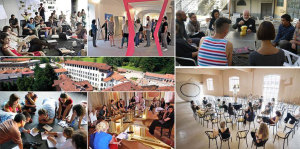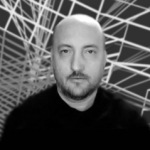 Ars Academy Research presents UNIDEE – University of Ideas is a multifaceted platform offering an educational programme of residential modules – taking place both at Cittadellarte and at academic partners’ sites internationally – alongside a series of artists’ residency projects.
Ars Academy Research presents UNIDEE – University of Ideas is a multifaceted platform offering an educational programme of residential modules – taking place both at Cittadellarte and at academic partners’ sites internationally – alongside a series of artists’ residency projects.
The program benefits from scholarships Unidee – City Art Foundation Pistoletto. Scholarships are partial and total. Will be awarded following a selection made by Unidee and Ars Academy Research. Here the application form.
The first proposal is the course of the PhD Researcher T-Node PhD Massimiliano Viel, Teacher of the Conservatory of Bolzano, musician, member of the collective Otolab and key man in Dissonanze Festival.The course is taught by professors from Italian into English.

Massimiliano Viel
Weekly residential module at Cittadellarte
TOPICS/TAGS: Listening, music perception, pattern composition, history of western music, performing arts, participation, temporality
To escape the identitary cages we are surrounded by, whilst dealing with today’s culture with its complexities, diversity and pervasiveness, a conscious approach to the whole range of music phenomena is fundamental both for curatorial and artistic/music practices and the perception of the habitual music listener.
The module puts forth an approach to music stemming from an analysis of listening, and proposes a series of techniques for music production as well as strategies to deal with music in its broadest acceptation. Specifically, it will trace the consequences of embracing the conceptual frame of cognitive patterns when dealing with the complexities of the evolution of music structures (from the history of Western musical tradition up to the forms and styles of the music practices in today’s media culture).
Alternating discussion of theoretical notions and listening experiences with practical laboratories (production/composition and performing with voice, body-percussion and found objects), the module is suitable for participants with any degree of music knowledge from novice to skilled musician, as no previous knowledge of music theory and music notation are required.